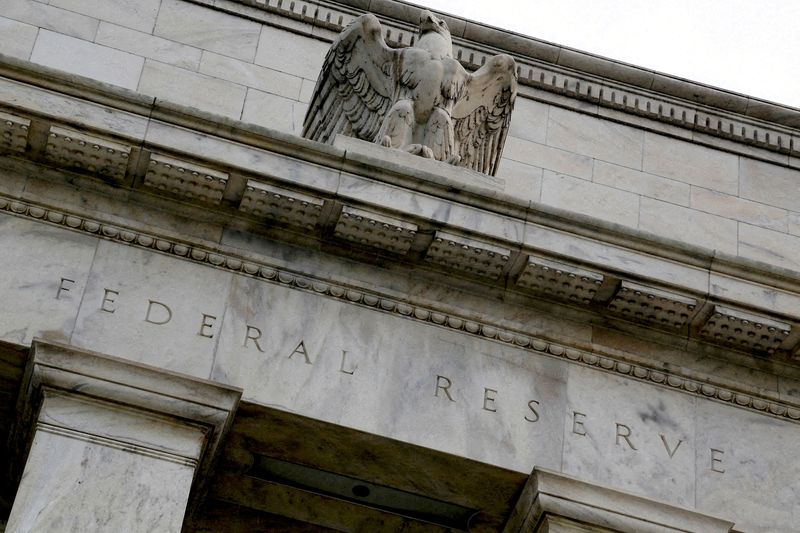By Hari Kishan
BENGALURU (Reuters) - Most central banks will cut interest rates in the first half of next year, even though the majority don't expect their inflation targets to be met by then, according to economists polled by Reuters.
Reuters' polls of over 500 forecasters globally over the past month found 2024 inflation views were upgraded for 28 of 48 economies compared with three months ago, although by modest amounts, despite aggressive monetary tightening over the past year.
With growth holding up better than most had expected and unemployment still low, inflation in most developed economies is still much higher than where central banks want it to be, which may persist until at least the end of next year.
Meanwhile, growth forecasts for this year were upgraded in 58% of developed economies surveyed, but for only 38% of emerging economies, where in this cycle inflation has been less of a problem and has led to milder monetary tightening.
The global economy was forecast to grow 2.7% in 2023, an upgrade from 2.5% in April, followed by 2.7% next year.
Economic resilience has kept core inflation - which strips out volatile food and energy prices - stubbornly high in many economies. A two-thirds majority of economists concluded it will be only slightly lower by year-end.
Those modest expectations have not stopped economists and financial market traders calling for rate cuts in the first half of 2024 despite central bankers, particularly in developed economies, saying rates will need to stay higher for longer.
This suggests a period of pull and push between markets and central banks in coming months as calls for monetary easing grow even louder.
"The historical evidence shows that the last part of returning inflation to target is normally the most difficult, so there's the risk that markets are taken by surprise if inflation does prove more resilient," said Henry Allen, macro strategist at Deutsche Bank (ETR:DBKGn).
"Recent experience has shown that central banks are very willing to pivot hawkishly if the data demands it, and there's a risk that markets are taken by surprise once again."
Asked which driver of core inflation will be most sticky over the coming months, a near 60% majority of economists, 135 of 223, chose wages.
Unemployment rates in most developed economies, at or close to their historic lows, were not expected to rise significantly over the next two years.
"As long as labour markets remain tight, workers will continue to demand compensation for inflation...we expect a gradual decline in core inflation, but it is likely to remain elevated for the remainder of the year," said Philip Marey, senior U.S. strategist at Rabobank.
Only the Bank of Japan, the Bank of Canada, the Swiss National Bank and the Reserve Bank of New Zealand of the nine developed market central banks polled were forecast to hit their inflation targets by the end of next year.
The U.S. Federal Reserve was widely expected to raise its benchmark overnight interest rate by 25 basis points to 5.25%-5.50% on July 26, a separate Reuters poll showed.
Expectations the Fed is nearing the end of its hiking cycle have weakened the dollar against major currencies, pushing down the dollar index around 2% for the year.

That is welcome news for emerging market central banks, which have struggled to keep up with Fed rate hikes. A stronger currency makes imports cheaper and helps mute price pressures.
Among 11 emerging market central banks surveyed with an inflation target, six were expected to hit or keep it below target by end-year.